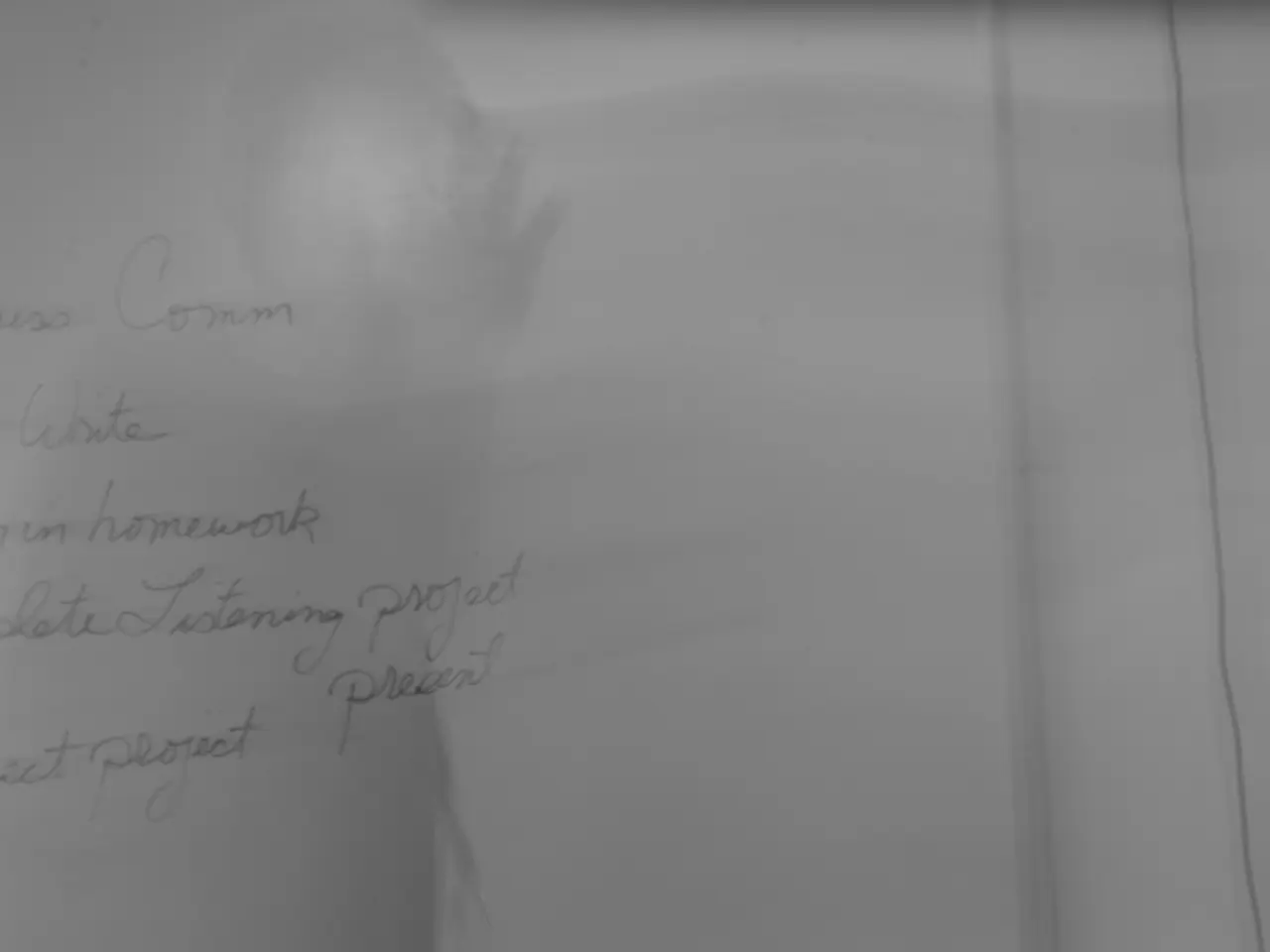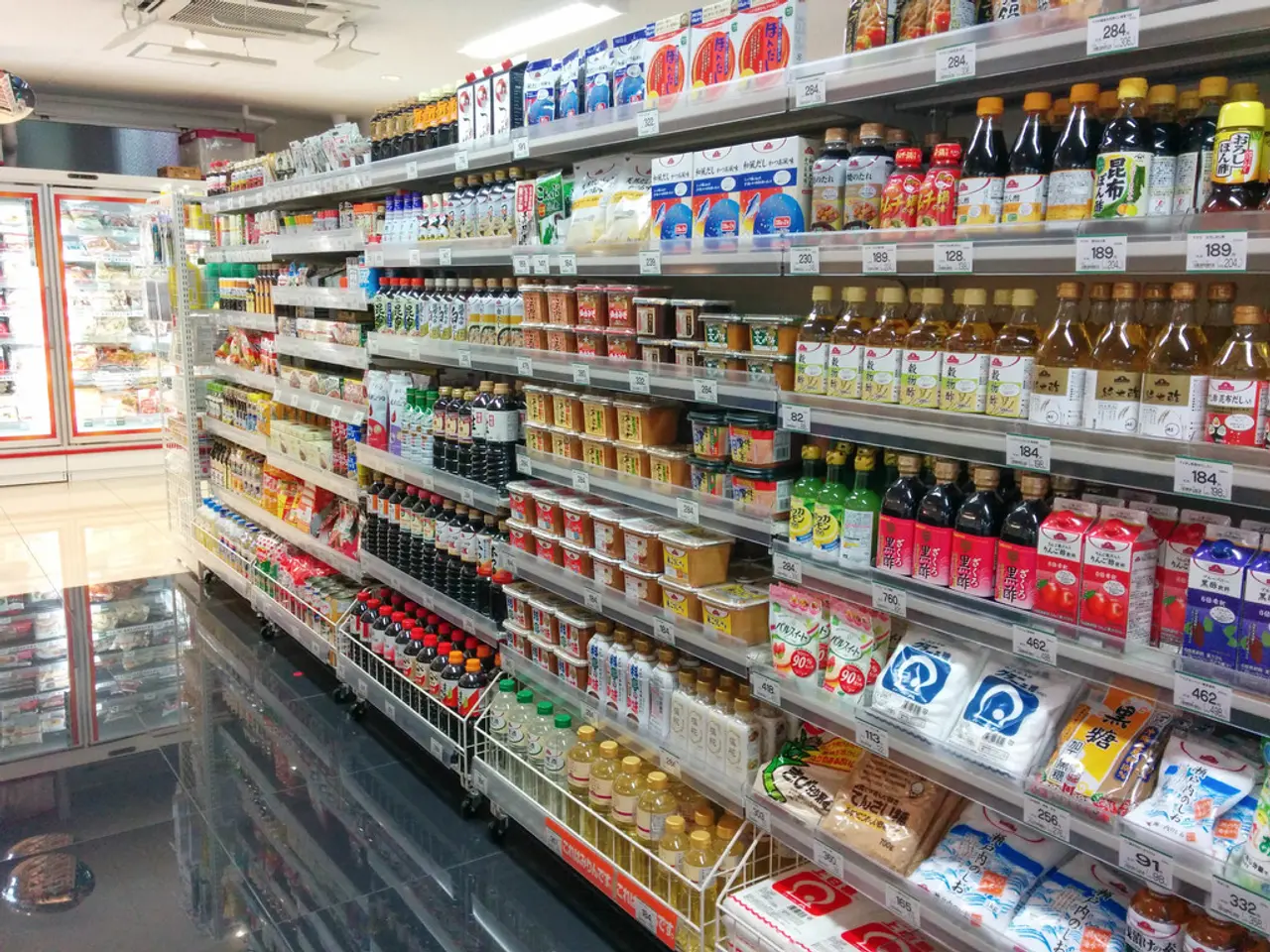Trump's Tariffs Lead to Heated Fed Dispute and Economic Uncertainty
Economy: Trump's Tariffs Cast Major Shadow Over Federal Reserve's Policy Decisions - U.S. Customs Duties Set by Trump Outshining the U.S. Federal Reserve Decisions
Wondering how President Donald J Trump's tariffs might influence the US economy? The Fed's major concern is maintaining a stable labor market and low inflation levels in the world's largest economy. However, they're bracing for two probable outcomes: rising prices and reduced growth due to Trump's tariffs.
The Fed and its Chairman, Jerome Powell, are squaring off with Trump, who claims his tariffs won't spike consumer prices and will instead fuel an economic boom. Powell, whose term ends next year, has made his stance clear: "Everyone I know anticipates a significant increase in inflation by the upcoming months due to tariffs—these increase will inevitably impact consumers."
Rising Inflation and Slower Growth
Powell warned that the consequences of these tariffs will depend on their magnitude, but regardless, higher tariffs will push up consumer prices and stunt economic growth.
Despite Trump's demands for swift credit easing, the Fed decided to keep the interest rate unchanged, still in the range of 4.25-4.5%. The uncertainty over the economic outlook remains high.
The interest rate is the Fed's most powerful tool: it influences the cost of borrowing for consumers and businesses, affecting loans for mortgages, cars, and other financing. Unsurprisingly, the Fed now anticipates slower economic growth this year compared to previously assumed—a growth rate of 1.4%. They also foresee a more robust inflation rate of 3.0%.
The Independence Question
The U.S. Federal Reserve's independence is safeguarded by law. Nonetheless, Trump persistently demands lower interest rates to boost the economy further. To emphasize his demand, Trump often personally attacks Jerome Powell, calling him a "fool" last week and a "stupid man" on Wednesday before the Fed's decision.
To the Fed's perspective, there's currently no pressing need to alter the interest rate level. Inflation is near its target of 2%, and the employment market remains strong. The economic forecast is uncertain due to tariffs.
Since January, Trump has imposed or threatened hefty tariffs on imports from various countries, raising their prices in the U.S.
For a deeper understanding, these tariffs are projected to inflate consumer prices by 3-5%, pushing inflation to approximately 3% for 2025. Economists also forecast "aggressive stagflation", indicating simultaneous inflation and slow growth for the rest of 2025. J.P. Morgan Research has revised its 2025 real GDP growth forecast from previous estimates to approximately 1.6%, and broader forecasts suggest tariffs could slash GDP by 0.5-1% by 2026.
- The Fed's primary concern, influenced by President Donald J Trump's tariffs, is maintaining a stable labor market and low inflation levels in the US, with the potential outcomes being increased prices and decreased growth.
- The federal reserve, despite Trump's demands for credit easing to boost the economy, anticipates slower economic growth this year and a more robust inflation rate due to the tariffs, with predictions of an increased consumer price inflation by 3-5%.





